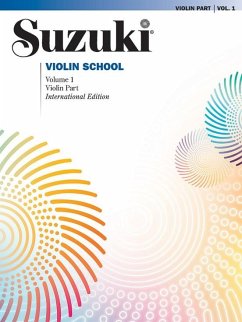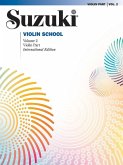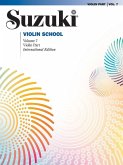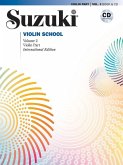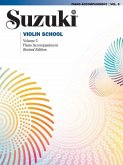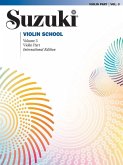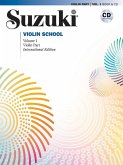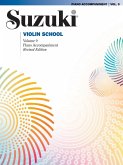Titles: Principles of Study and Guidance _ Twinkle, Twinkle, Little Star Variations (Shinichi Suzuki) _ Lightly Row (Folk Song) _ Song of the Wind (Folk Song) _ Go Tell Aunt Rhody (Folk Song) _ O Come, Little Children (Folk Song) _ May Song (Folk Song) _ Long, Long Ago (T.H. Bayly) _ Allegro (Shinichi Suzuki) _ Perpetual Motion (Shinichi Suzuki) _ Allegretto (Shinichi Suzuki) _ Andantino (Shinichi Suzuki) _ Etude (Shinichi Suzuki) _ Minuet 1, Minuett III from Suite in G Minor for Klavier, BWV 822 (J.S. Bach) _ Minuet 2, Minuet, BWV Anh. II 116 from Notebook for Anna Magdalena Bach (J.S. Bach) _ Minuet 3, Minuet BWV Anh. II 114/Anh. III 183 (J.S. Bach) _ The Happy Farmer from Album for the Young, Op. 68, No. 10 (R. Schumann) _ Gavotte (F.J. Gossec). Revised edition features: New engravings in a 9" x 12" format _ New editing of pieces, including bowings and fingerings _ 16 additional pages _ Additional exercises, some from Dr. Suzuki, plus additional insight and suggestions for teachers _ Glossary of terms in English, French, German and Spanish _ Musical notation guide _ Fingerboard position _ New photos. Revised CD (item 00-28260) features new recordings by Bill Preucil, Jr and piano accompaniments recorded without the violin part. This title is available in SmartMusic.

